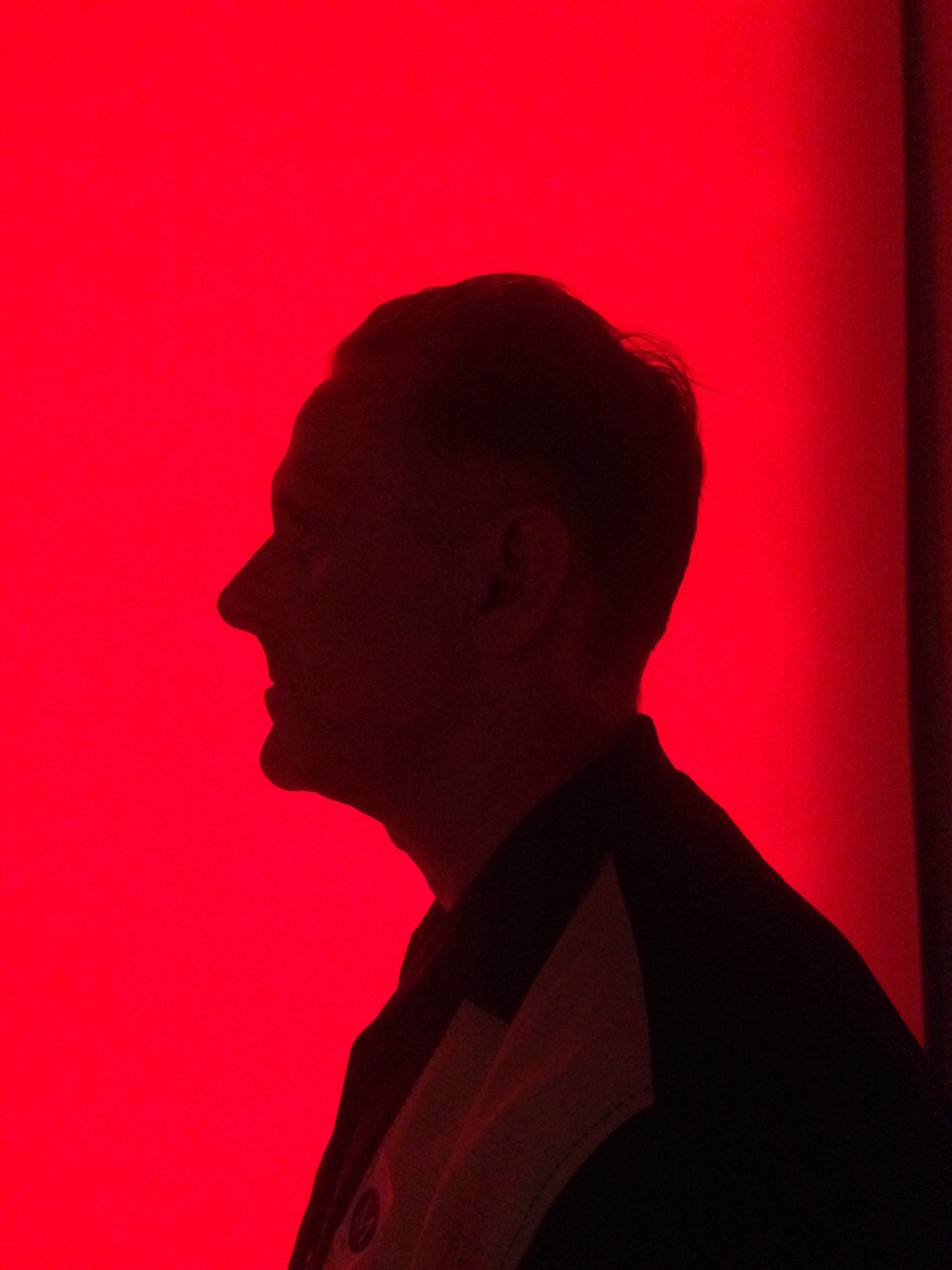
Art21 Educator Don Ball. Photo by Laura Howell. Courtesy of Don Ball.
This week kicks off our new series on Art21 Educators, featuring interviews and lesson plans from a few of the program’s most dedicated members.
Don Ball teaches art to 9th-12th grade students at Cawthra Park Secondary School in Mississauga, Ontario, home to a regional arts program. He participated in Year 4 of Art21 Educators in 2012-2013.
Why were you initially drawn to the Art21 educators program?
I found the application for the educators program by mistake. I was looking for something on the Art21 website and found a link I’d never seen before. Although the instructions clearly said that the program wasn’t available to Canadians, and that they were interested in cross-disciplinary work, but not including science at the time, I sent a note saying I was a Canadian, my teaching partner was in science and that I’d be thrilled to apply to the program if I could. The whole application process and preparation of a video to explain my interest in art education was a hoot. That process alone was engaging.
I have followed many of the artists profiled in Art21 throughout my career—many before there was an Art21. The resources of the broadcast show were very valuable in my classroom. Attending Art21 Educators in 2012 opened me to so much more—a community of passionate art educators, strategies, resources and opportunities. I have been able to develop my students through looking at contemporary art, with the ideas and strategies of contemporary artists always in the foreground. I came to Art21 Educators five years before my retirement. I figured it was a great time to inject new life into my work, and it would give me a chance to develop my learning and teaching throughout my last years.
How would you describe the Art21 Educators program?
Diverse, fluid, meaningful, reflective, challenging, collaborative, integral, and open.
Diversity of art and artists, fluidity of strategies and approaches, meaningful to students and educators, reflective of our times and the people of our times, challenging to thought, integral to classroom and cultural education, and open to big, new ideas.
I thought the sessions in New York would be good at least, and that I would have an opportunity to look at lots of art, and take home great resources. The sessions were so much more than I’d hoped for; it’s the people and the ongoing community of learners online that have made this so rewarding and enriching both for me and my students.
Art21 Educator Don Ball. Courtesy of Don Ball.
How has Art21 Educators changed your practice?
I now introduce artists in contrasting dialogues, showing at least a couple of artists who think about and create art in ways that resonate off each other, and hopefully for the students that I’m working with.
I have always encouraged students to make connections, personal connections, with artists of their own choosing. The resources of Art21 Educators add to these strategies. Students are able to richly explore artists that connect with them in some way. It is not at all unusual for me to suggest an artist to a student then to find the next day that they’ve watched segments (and made notes!) on another five artists they thought were equally or more interesting to them. My students are always open to this discovery.
I have become more fluent in online possibilities for my students to develop and share their work, their research, and their ideas; thanks to Art21 Educators, I encourage students to think about ideas that matter, and especially that matter to them.
How do you continue to stay involved with Art21?
I am involved in the online community of educators, posting successes and challenges from our own situations. I also attend monthly online meet ups, hearing from others who are developing ideas throughout the year as well. I have continued to attend New York summer institutes, finding the mental stimulation to be the best discussion and development of rich ideas for the following school year.
When I came back from my first summer institute, my partner commented that I haven’t been so excited, so engaged in my work in years. That has continued throughout my four years with the program.
Art21 Educator Don Ball in front of Joseph Beuys’ Nova Scotia College of Art and Design Blackboard, 1976 at the Art Gallery of Ontario. Courtesy of Don Ball.
What are you most excited about for the upcoming year with Art21?
Season 8 brings new possibilities to explore art in different contexts. The artists will bring new ideas and maybe a different sensibility to a wider audience. I look forward to integrating what I already know and practice with the new.
How can we make our students aware of their place in cultural practice? What makes students aware, reflective art makers? How can students be active participants in the culture where they live—locally, and globally?
Want to learn more on the integration of Art21 films in Don’s classroom? Don’s students made the following video as a tribute to him, titled ART111 in honor of the room number of Don’s classroom.